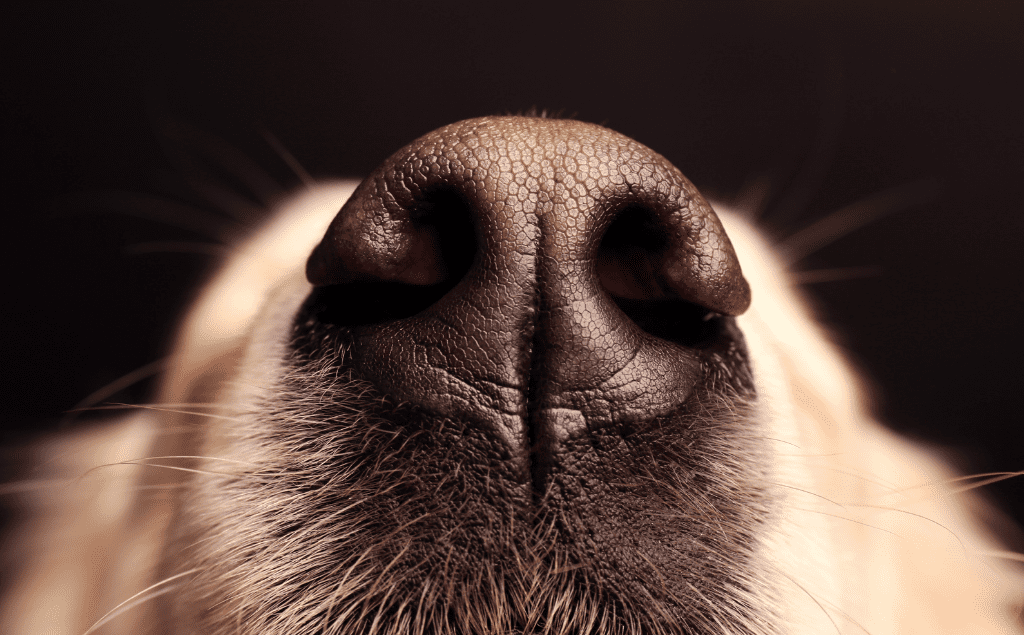What Causes a Dog's Nose to Bleed in Highland, IN?
Nosebleeds can be an extremely worrisome event for dog owners in Highland. Especially if someone has never seen a dog’s nose bleed before. You might rush over with tissues and fuss over your dog, while they try to scurry away because they don’t know what’s happening. Anxiety fills the room as you both panic over a minor nosebleed.

Though any signs of pain, including blood, is alarming, it is more than likely an issue that is easily fixed. And if not, the following information will guide you through it.
Causes of Nosebleeds in Dogs in Highland, IN
A bloody nose is medically referred to as epistaxis. Most humans get nose bleeds from time to time, and some children can’t seem to go a day without one. It might be common but it is still worrisome. So what might cause a dog’s nose to bleed?
Muzzle and/or Head Trauma
The most common reason for a dog’s nose to bleed is trauma to the muzzle or head. Accident-prone pups in Highland are the likely candidates for these types of nosebleeds. It is understandable that, like children, they run into doors and cabinet corners and tables and trees and all sorts of things. Even each other.
Dogs and children alike play hard and often end up with some bruises after they have amused themselves. A nasty bonk to the nose can result in what seems like a bad injury, but really is just a small nose bleed that will end soon after it begins.
Respiratory Infections
It is also likely that, in the absence of a hit to the face, a dog with a nosebleed could have a respiratory infection. Inflammation in the nasal passages could show itself through a bloody nose. Bleeding from chronic infection is often from one nostril.
Foreign Object in Their Nose
Not as often as running into a wall or having an infection, is the possibility that a dog with a nosebleed in Highland could have a foreign object lodged in their nose. Canines of course use their noses as the main indicator of their world, so it makes sense that they would occasionally get something stuck in there. Curious noses can get into anything and everything.
Occasionally the something they get into will not be so friendly to them. Grasses, sticker bushes, and other random small bits of debris could lodge themselves inside a dog’s nose causing pain and bleeding, as well as block airflow. If you are unable to safely remove an object from your dog’s nose gently with tweezers, call an emergency vet in Highland, IN right away.
Aspergillosis Condition
Along these lines is aspergillosis. This is a condition of dogs who love to sniff around the garden. A certain fungi, aspergillus, most often in leaf mulch, could infect your dog’s nasal passages and cause damage as they vacuum up the spores. This mostly affects dogs with long noses, where the fungi would colonize and begin to destroy the inside of the nose.
Ingesting Rodenticide
Another cause of nose bleeds in dogs could be the ingestion of rodenticide. Curious young dogs can get into all sorts of things, and are most likely to be the victims of this type of poisoning.
Blood Clot Disorders
Even a blood clotting disorder could be the cause of a dog’s frequent nosebleeds. Certain breeds such as Doberman Pinschers are known to have congenital blood clotting issues that result in frequent nosebleeds. It is likely that reputable and licensed breeders will know if that gene exists in their dogs.
Additional Causes
Other health issues that could cause a dog's nose to bleed include:
- High blood pressure
- Dental diseases, such as a tooth infection
- Tick-borne disease
- Growths, such as tumors in the nasal cavities (though this is rare)
What to Do if Your Dog’s Nose is Bleeding in Highland, IN
Though nose bleeds aren't always emergency situations for dogs, it's important to know what you should do if you notice that your dog's nose is bleeding.
Keep Yourself and Your Dog Calm
The first instinct is to rush over with tissues, but this will likely cause your dog’s blood pressure to rise and more blood to gush out. Do your best to remain calm and to calm your dog.
Put an Ice Pack on the Bridge of Your Dog's Nose
If you can, use a towel-wrapped ice pack on the bridge of your dog’s nose. This should staunch the blood flow as it aids coagulation. When you do so, do not cover the dog’s nostrils as they will panic more if they cannot breathe normally.
Call a Veterinarian
The best option is of course to call your veterinarian in Highland. Keep an eye on your dog whenever possible so you know if they have simply bonked their muzzle, as this is the simplest explanation for a nosebleed. If you do not think they have, or if it is an ongoing problem, it is likely a vet will be needed to determine what is wrong with your dog.
Check their nostrils for foreign objects and take note of other signs of pain or illness. Most likely it is a simple dog nose bleed, but it is important to get medical attention immediately if there is an infection or poisoning of any kind.
A vet will likely ask questions such as is the dog bleeding from one nostril or both? Does it stop after a few minutes or continue for much longer? Are there any other signs of distress or strange behavior? Of course, you know your dog best, but a veterinarian in Highland will be able to determine if your dog should come in for testing.
A nosebleed could be nothing more than a slight trauma, or it could be a serious illness that needs immediate attention.
When in doubt, call the veterinarian! And if there is any chance the dog has gotten into poison or medications, take them to the emergency vet clinic as soon as possible. If caught in time, any cause of a nosebleed should be solved.
Recent Posts
About Us
At Emergency Veterinary Care Centers (EVCC), we know that pet emergencies are unpredictable and often stressful. That's why our team, with over 20 years of emergency and critical care experience, is ready to assist you and your pet in the toughest situations.


